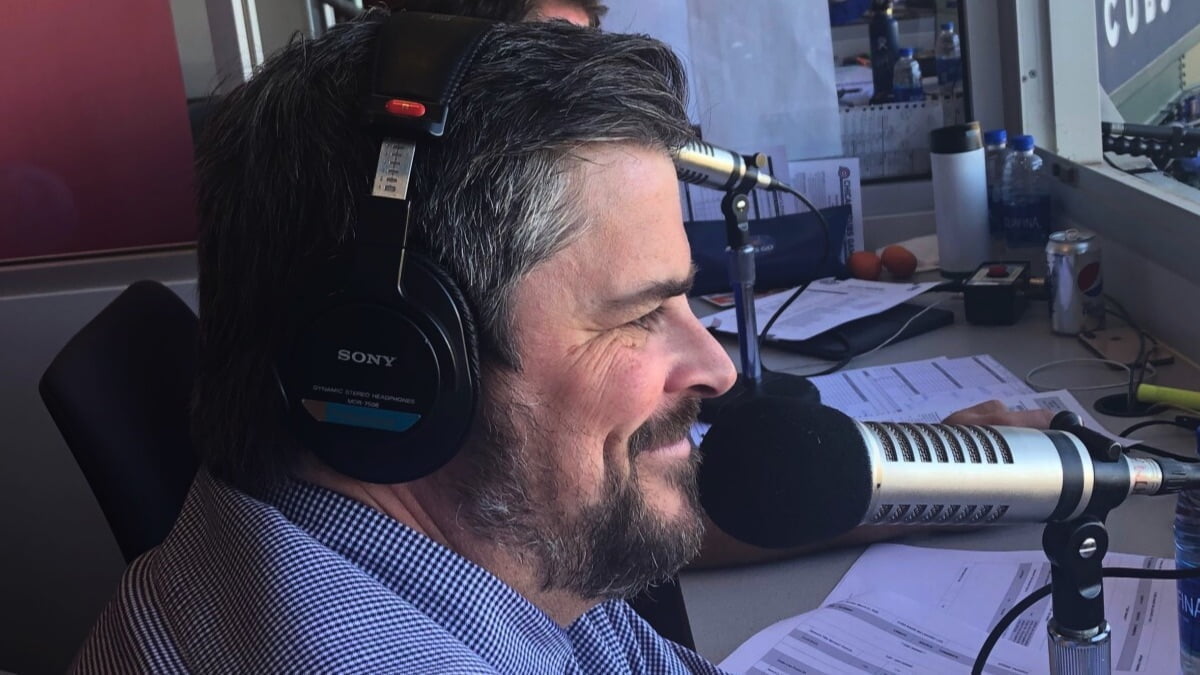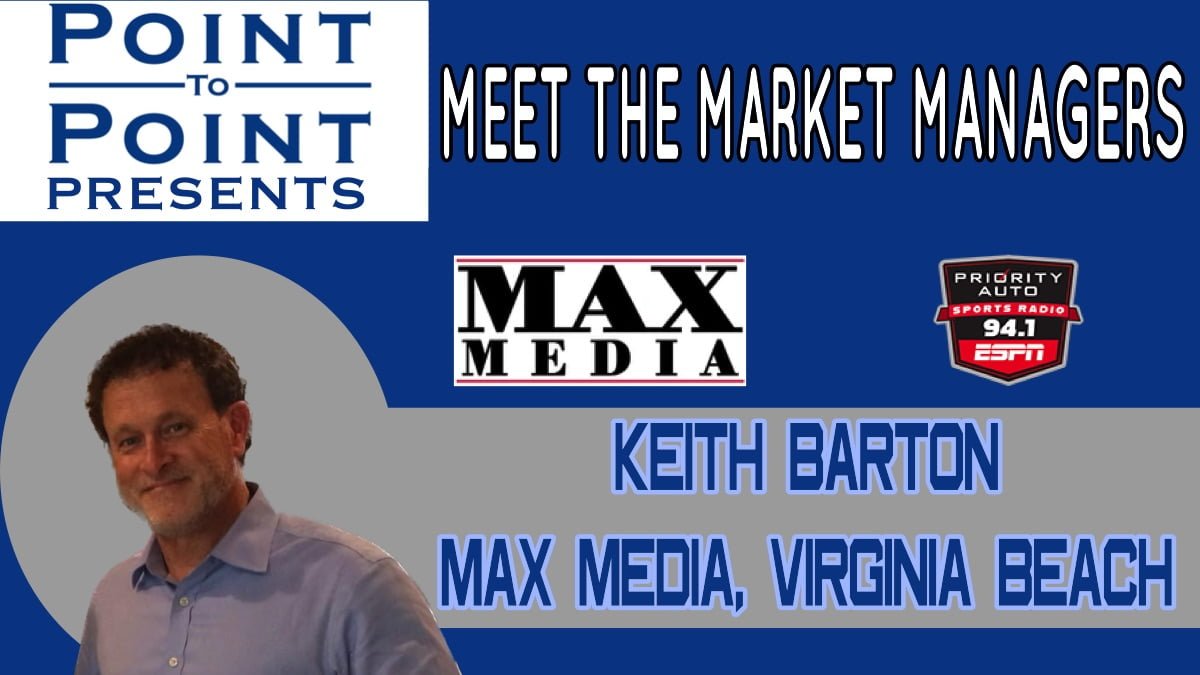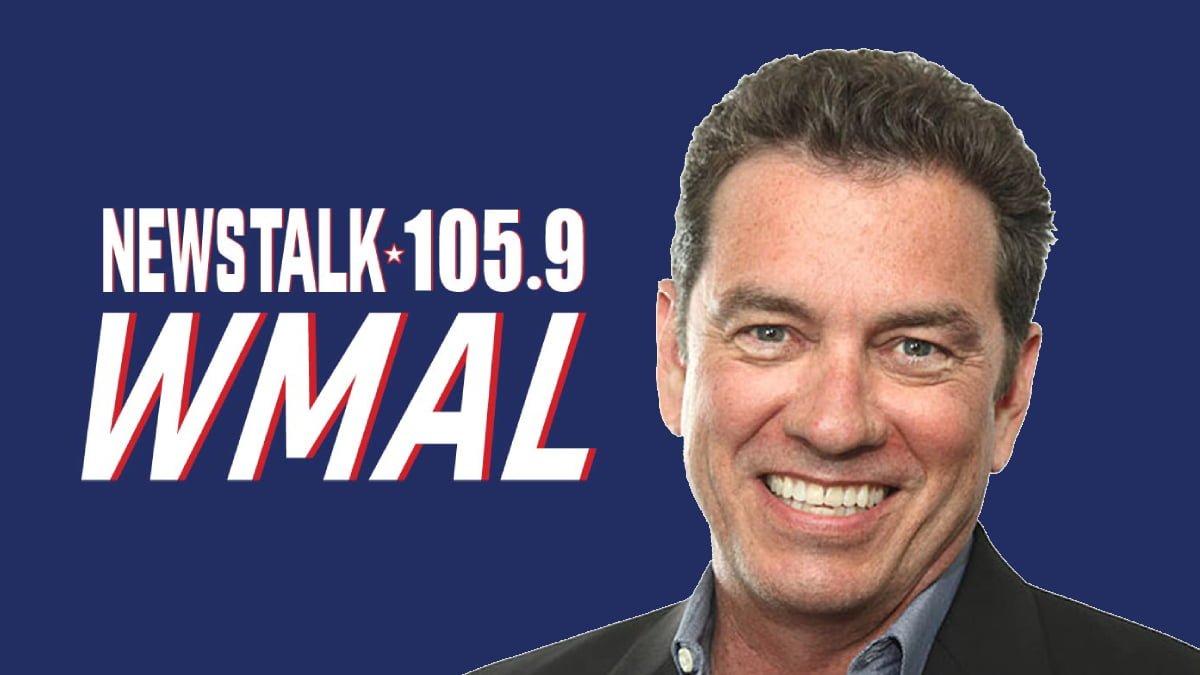It’s always interesting to me who people invite into their lives. When you’re driving around, who do you listen to? Why do you listen to them? When it comes to sports radio, Chicago host Matt Spiegel is more than just a knowledgeable guy. He’s collaborative. He’s a radio chameleon that can morph into the version of himself that the show needs most. Bigger than all of that, he’s a good friend.
When you hear Spiegel doing radio, he’s simply a guy that you like being around. That goes a long way. He doesn’t punch you in the face with his point, he talks to you the way a friend would. You don’t go out to dinner and see people hanging out with others they don’t like. It often works the same way in radio.
Spiegs isn’t an egomaniac either. He could puff out his chest and say he’s been at 670 The Score since it was 820 or 1160. He could yell like Denzel Washington at the end of Training Day, “I’m the man up in this piece!” Instead, he’s more like former NBA player Dwyane Wade – willing to tweak his role if that’s what it takes to win.
He’s also a seamhead. He has a great baseball podcast, The PBP, and will chat with Mariners TV play-by-play man Dave Sims this Thursday. In our conversation below, Spiegel also chats about doing fill-in play-by-play for the Cubs, and what it’s like to get critiqued by some of the biggest names in the business. He also chats about loving and hating the same on-air partner, and the toughest time in his life doing radio. Enjoy!
Brian Noe: How would you describe your broadcasting career?
Matt Spiegel: [Laughs] Oh man, it’s crazy. I don’t know how much of the origin story you want.
BN: Yeah, I’m interested in it.
MS: Okay, so in 1984, I’m listening to Art Rust Jr. who did a sports show on WABC Radio in New York. I was growing up in suburban New Jersey and I called to say that Dwight Evans should be the American League MVP. He hit .295 with 32 homers, 90-some RBI, something like that. He said, young man, thank you for the call, but I think Willie Hernandez, the closer for the Detroit Tigers is gonna win MVP. And he did. I hung up and the next caller that he went to said, hey, that was a nice kid. And thus was born a life of me wanting people to say that was a nice kid after I said something on the radio. That’s the origin story.
My timing is absurdly fortunate. I also was not a college student as an intern. That story in ‘94 is freaking crazy. I was singing with a band having turned my back on sports media for a couple of years after college. At the set break of my show in 1994, a guy came up to me and said, man, you’re so much fun to watch. What do you want to do with your life? I said, you know, I went to college for sports radio and sports TV, blah, blah, blah. He said, do you want to get back into that at all? I said, yeah. His name was Henry Henderson and he was the executive producer at The Score 820.
I showed up the next day in his office with my long hair and he hired me as an intern. I interned for one year for McNeil and Boers for free. Monday, Wednesday and Friday, I showed up for seven hours a day, three days a week for no money. Eventually got hired as a part-time weekend producer. I think I was literally the last non-college student to be hired as an intern. Now of course, there are no interns for the most part. So I got grandfathered in, in multiple ways, didn’t I? In terms of the good fortune of my timing, sometimes I think that I was too late into the business because the big, big money that people were making years ago, I just missed that. But the truth is, I would not have even gotten into the business if I was 10 years later. It wouldn’t have worked out.
BN: That’s crazy, man. You got another huge opportunity to fill in as a Cubs play-by-play guy. When you found out you were getting that chance, what was that moment like for you?
MS: Terror and excitement. I knew that I would be the most technically unprepared person to ever do the job. That is something I had to admit and come to terms with. My preparation, it continues to be technically making sure I’m on point with everything, of how to do the nuts and bolts of it. I eventually found the calm that you need to do it through conversations with Len Kasper, Joe Buck and Jason Benetti. Principally those three, really Kasper and Buck were just awesome to me, assuring me that I’m a broadcaster, and that it’s all broadcasting. I know how to make it sound good, and make it sound calm, and be entertaining, and to trust that part of it while working on the technical aspects.
That’s very different. Most of the young broadcasters or play-by-play guys will come out of a play-by-play factory somewhere and they’re technically great. They spend the early part of their career trying to have a personality and let the personality come through. I come at it from the polar opposite perspective, which is part of why I’m so fascinated with the job and all that it entails.
BN: What’s the difference between screwing up during a sports talk show and screwing up while doing play-by-play?
MS: If I make a mistake, or I lose a moment of awareness as a talk show host, a co-host or a producer cleans it up for me, or I’d make a joke and I’d be self-effacing. I’d say, yep, I was researching stuff, my bad and we’d move on. It’s live radio and nobody cares.
When you make a mistake doing play-by-play and you forget how many outs there are and it’s time to go to the break and you’re underwater, you’re just exposed and it’s awful and it’s horrendous. Then you still have to come back the next half inning and be strong and calm.
I’ve recovered from bad talk radio in the middle of the segment, let alone in the commercial break. I know how to recover from that. Recovering from a play-by-play disaster is jarring because you are putting it live on the record forever. Something historic might happen and it’s on the record forever exactly as you did it. So yeah, that’s a different animal.
Dude, we turned it into a bit. We did something called Spiegel Idol. After I would do an inning, we would pick apart my inning the next day. Once with Buck, once with Kasper, once with Benetti, once Pat Hughes, once with Boog Sciambi. Those segments are unbelievable. The wisdom that came out of that was unbelievable. But also me being vulnerable and playing when I literally f–k up and don’t know how many outs there are and toss to break on a 50,000-watt blowtorch. Holy shit. But boy, I learned a lot. And I think it was good radio.
BN: When you got moved off of weekdays and you just had the Sunday show, did you think that you’d be back doing weekdays ever again?
MS: I did not believe that my time at The Score as an everyday host was done. I never believed that because I love the place. I love the soul of the place in terms of the listeners and the connection with this town. And my feelings about that connection go back a long, long way. They go back to ‘94. I just feel like I’m supposed to carry that on as far as I can, and bring whatever it is that I bring, whether it’s a certain kindness, a curiosity, a passion, or it’s a willingness to work with absolutely anybody, whatever it is that I bring, I feel like I’m supposed to bring it. I just didn’t believe that I was done.
The other thing is that we can’t let the thoughts of one programming mind dictate how we feel about our own talent. We just can’t, man, because they have their reasons, whatever they are, and we are going to exist hopefully in the spot where we’re making the content longer than that person is going to exist. Those people move around a lot. They just do. I’ve worked for a bunch of different programmers. Most of the hosts that you talk to, Brian, have worked for a ton of different programmers. You don’t let one person define how you feel about your own talent.
BN: What was that moment like for you when you got called back to doing weekdays, teaming up with Danny, but a former partner of yours, Dan McNeil, was fired for what he put on Twitter. What was that like for you?
MS: Man, that whole two years was a mindf–k. I’ve gotten a lot of praise about being positive and being level, but there were lots of dark nights and days because I love Dan McNeil. And for a while I hated Dan McNeil. Then eventually, I love Dan McNeil again. Some of it is the nature of our business, and some of it is bosses that make people feel like they can’t be honest with each other. So do you forgive somebody for not telling you everything? Tricky stuff, tricky stuff.
But you work on yourself. You work on your own happiness. You get reconnected with your own values, and you realize what matters and what’s important. That is, if given the chance, do a great job and don’t make somebody else’s life harder than necessary. Because people who get in trouble like Mac or anybody, they’re beating themselves up, do I need to pile on to that? No. So I don’t want to pile on to anybody who’s going through a hard time. That’s for sure.
BN: It’s really interesting; the arc of I love him, I hate him, I love him again. What simply caused you to revert back to “I really do care about this guy”?
MS: The undeniable bond that we forged through years working together. We made daily radio for five years, and that man went through some shit. So did I, we both went through a lot of stuff in our lives. I’ll tell you, this story exemplifies who Mac is. I was a producer in the ‘90s, I guess ’97, and my mom died. I went back home. I came back, and it was about three weeks later, it was the Friday before Mother’s Day.
At the end of the show, McNeil as he was signing off said, “Hey, everybody out there, Happy Mother’s Day to the mothers and Happy Mother’s Day to yours. And while you’re celebrating, do me a favor. Think about our guy, Matt Spiegel, who is about to have his first Mother’s Day without his mom. And that’s hard. So give some love to our guy, Spiegs, if you see him or if you just think of him. See you on Monday.” I get chills thinking about it. There are many examples of Dan McNeil showing that heart. How do you hate a guy like that? You don’t.
BN: What was the hardest time for you to do radio when you were dealing with something else in your personal life?
MS: [Laughs] Ahh, there’s so many, dude. There’s so many. Divorce is hard. That’s a hard one to go through. I’ll tell you what the hardest was, was when I started taking anti-anxiety meds. So many of us in the world have found that, and thank God we have found it.
For me, it was one late night I noticed, God, I’m really worried about the show. Wait, there’s nothing to worry. God, I’m really worried about my band. Wait, there’s nothing to worry about. God, I’m really worried about my marriage. Wait, there’s nothing to worry about.
I realized that my mind was just chasing worry, so I started taking anti-anxiety meds, and they make you a little more anxious at first. Then you got to figure out the dosage and all that. So doing radio when you know that your brain chemistry is going through an adjustment period, that was the hardest. That was the hardest.
BN: When you look back at your sports broadcasting career to this point, what would you say you’re the most proud of?
MS: I’m proud that I can make chemistry with anybody. I’ve worked with 37 different hosts since 2009 at The Score. Thirty-seven different people I’ve made radio with. I can honestly say that I have found a way to make chemistry with like 36 of them.
I’m the youngest of five. I get along with all my siblings. I know how to make chemistry and I love it. It’s its own little experiment. Maybe it’s my years doing improv as well, like being an improv comedy guy. But I love organic, good chemistry and fun conversation. I’d say that’s the thing I’m most proud of.
BN: What would you say is the key ingredient to just simply get along with so many people? Is it humility? Why is it that you’re able to mesh with others?
MS: There probably is some humility. You’re also eating shit just a little bit. You have to be careful that it’s not a lot because that can come back to bite you psychologically. But you eat a little shit, and this is not necessarily with Danny, obviously, I don’t want him to read this and think I’m talking about him. It’s just with anybody. Just kind of understanding people as best you can and recognizing that sometimes their anger is actually fear. That’s almost always the case, that their anger is fear that they’re not processing in the best way that they would like to, or hurt and they’re not processing it in the best way that they would like to. So personally, that’s a big thing.
The other thing is being able to have a lot of tools. For instance, when I was working with Dan McNeil, I needed to be the most prepared, most analytical, most researched person in the partnership. When I work with Danny Parkins, those skills become much less useful because he is more researched. He is more analytical. He is more prepared because that’s his nature. So what does the partnership need? The partnership needs me to be a little more relaxed, a little more entertaining, a little more unfiltered to access those parts of my personality. I’m fortunate to have all that stuff in the bag, and the self-awareness to look at it and say, “okay, what do we need?”. I love that part of it, and that’s something that changes based on whichever partner you have.
BN: That’s cool, man, because it is just like sports. And there are a lot of radio hosts that don’t look at it like that. Instead of, hey, we’ve got some 3-point shooters, instead of me shooting threes, I’m going to be more of a distributor. There are hosts that are like, this is just what I do, and I’m not working with this guy. It’s really smart how you approach it because that’s oftentimes what it takes.
MS: I hope you print all of that question because you’re exactly right. We talk about it all the time in sports, especially in basketball. I’m drawn to those conversations in sports so much because it’s absolutely the way to think about so many collaborative endeavors. My favorite athletes are the ones who understand that. Even while they have the ego that it takes to be great at their jobs and have just enough humility and awareness of how collaboration works to have the trust and do what needs to be done.
Look at the Warriors, man. Look at the way Steve Kerr runs the Warriors. It’s f–king beautiful. Look at the way Phil Jackson convinced Jordan and the Bulls to run the triangle. It is beautiful. And look at the way an incredible jam band like Phish, or the Dead, or a great jazz band listens to each other and fills in the gaps where it’s needed, or a great talk show host listens to each other and fills in the gaps. It’s the same kind of human creative collaboration.
Brian Noe is a columnist for BSM and an on-air host heard nationwide on FOX Sports Radio’s Countdown To Kickoff. Previous roles include stops in Portland, OR, Albany, NY and Fresno, CA. You can follow him on Twitter @TheNoeShow or email him at bnoe@premierenetworks.com.







